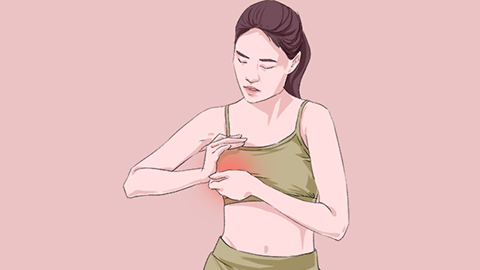What causes the areola to enlarge?
Generally, enlarged areola may be caused by factors such as hormonal changes, genetic factors, mammary hyperplasia, mastitis, or breast cysts. The details are as follows:

1. Hormonal Changes
The size of the areola is closely related to hormone levels in the body. During puberty, pregnancy, or lactation, the secretion of estrogen and progesterone increases, which may cause the areola to gradually enlarge and darken in color. This is a normal physiological phenomenon related to changes in the female menstrual cycle and reproductive function, and generally does not require excessive concern.
2. Genetic Factors
The size of the areola is also influenced by genetic factors. If family members have larger areolas, an individual may also have a higher likelihood of having enlarged areolas. Areola enlargement caused by genetic factors is difficult to completely prevent through routine preventive measures. However, women can maintain good breast hygiene, avoid unnecessary breast stimulation or injury, and reduce the possibility of changes in areola size.
3. Mammary Hyperplasia
Mammary hyperplasia may be related to excessive growth and degenerative changes in breast tissue, which are associated with endocrine disorders and emotional instability. Mammary hyperplasia may cause enlargement of the areola and may be accompanied by symptoms such as breast pain, breast lumps, or nipple discharge. In such cases, medications such as Xiaojin Pills, Rupixiao Tablets, or Xiaoyao Pills may be used under a doctor's guidance.
4. Mastitis
Mastitis is an inflammatory condition of the breast caused by infection or irritation, commonly seen in lactating women. Mastitis may lead to enlargement of the areola and may be accompanied by symptoms such as redness, swelling, pain, and fever in the breast. Anti-inflammatory medications such as Penicillin V Potassium Tablets, Cefixime Dispersible Tablets, or Erythromycin Enteric-coated Capsules should be used according to medical advice.
5. Breast Cysts
Breast cysts may develop due to poor milk drainage, resulting in milk accumulation within the breast, forming a benign lesion. Cysts may cause breast enlargement, leading to an enlarged areola, along with symptoms such as swollen axillary lymph nodes, breast pain, or chills. Treatment options may include medications such as Rupixiao Capsules, Guizhi Fuling Capsules, or Xiaojin Capsules, used under medical supervision.
It is recommended to maintain healthy lifestyle habits, such as balanced nutrition, moderate exercise, and regular sleep patterns, to help maintain stable hormone levels in the body. Additionally, regular breast examinations should be performed to detect and treat breast diseases promptly.







